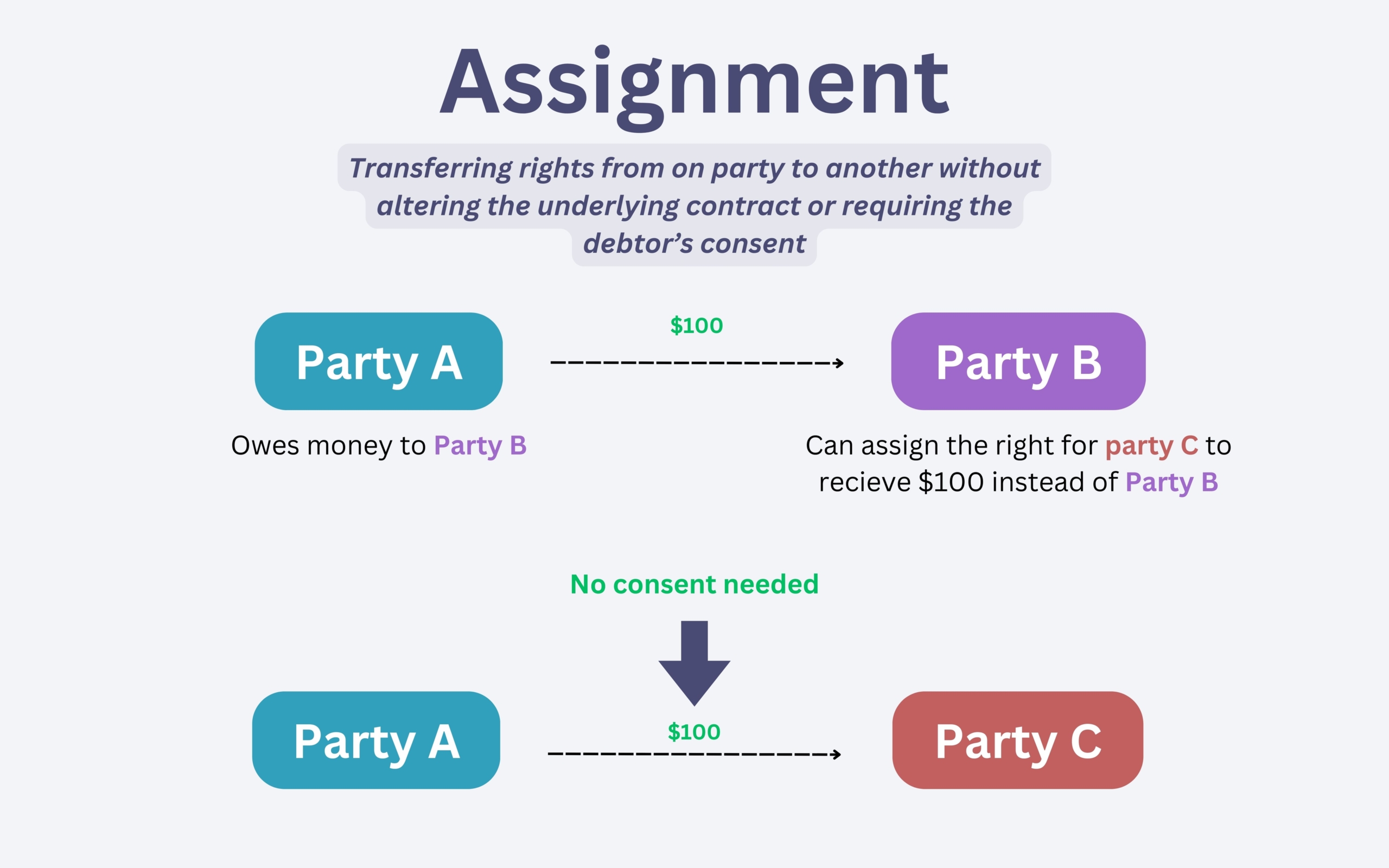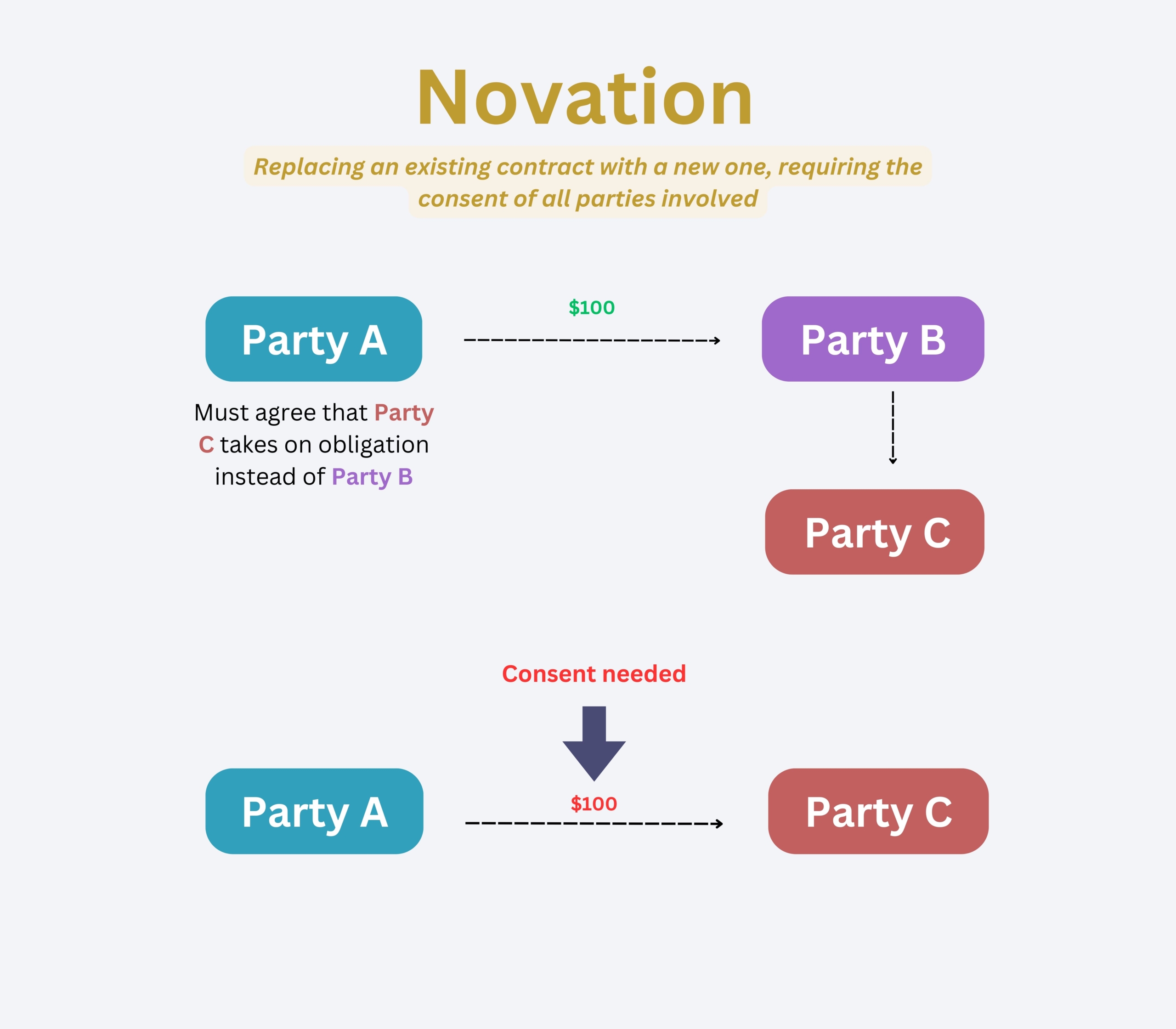In the context of contract law, understanding the differences between assignment and novation is important for effectively managing contractual relationships and obligations. They have significant differences in terms of their legal implications and requirements.
Assignment
Assignment involves the transfer of rights from one party (the assignor) to another (the assignee) without altering the underlying contract or requiring the debtor’s consent. Key points include:
- Transfer of Rights: Only the benefits or rights under the contract are transferred. The assignor retains their obligations.
- Consent: The debtor’s consent is not required for the assignment to be effective. However, the assignee cannot be imposed with obligations without their consent.
- Notification: It is generally good practice, although not always legally required, to notify the debtor of the assignment.
For example, if Party B is owed money by Party A, Party A can assign the right to receive payment to Party C without needing Party A’s consent.

Novation
Novation, on the other hand, involves the replacement of an existing contract with a new one, requiring the consent of all parties involved. This creates a completely new contractual relationship and extinguishes the original contract. Key aspects include:
- Substitution of Parties: A new contract is formed where a new party (the novatee) replaces one of the original parties (the novator), with the consent of the remaining original party.
- Discharge of Obligations: The original contract’s obligations are discharged, and a new set of obligations is created under the new contract.
- Consent Requirement: All parties involved must consent to the novation for it to be valid.
For example, if Party A owes Party B $100, and Party B agrees to transfer this obligation to Party C, with Party A’s consent, a new contract is formed where Party A now owes $100 to Party C, and Party B is released from the original obligation.

Legal Distinctions
The main differences between assignment and novation lie in the nature of the transfer and the necessity for consent:
- Assignment: Transfers rights only and does not require the debtor’s consent.
- Novation: Transfers both rights and obligations, discharging the original contract, and requires the consent of all parties involved.
In summary, assignment allows for flexibility in transferring rights without complicating the original contract, while novation provides a clean slate by forming a new contractual relationship. Each mechanism serves different strategic needs, depending on whether one wishes to transfer benefits alone or completely restructure obligations and parties involved.
We assist a wide range of clients with all aspects of commercial law. Please do get in touch if you would like assistance. Contact Steven Moe at stevenmoe@parryfield.com or Aislinn Molloy at aislinnmolloy@parryfield.com.




